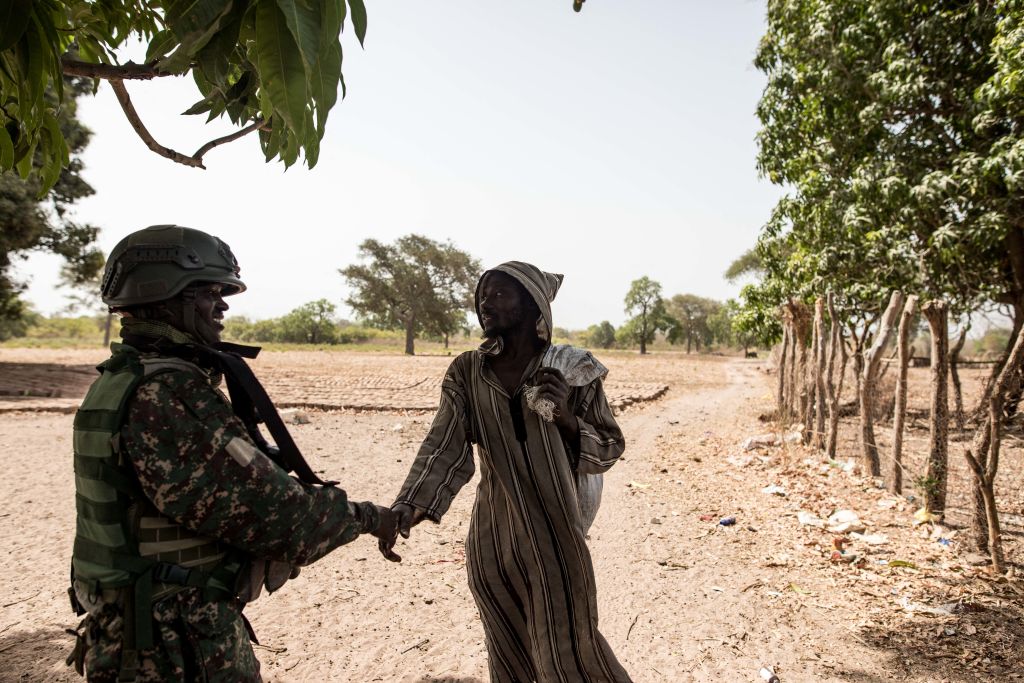ADF STAFF
After years of serving in the Senegalese Army, Gen. Mbaye Cissé wants to apply lessons he has learned and see more involvement from the public to deal with insecurity.
Cissé, who has been director-general of the Dakar-based Centre des Hautes Etudes en Défense et de Sécurité (CHEDS) since July 2020, was a section commander in the Casamance region, where a conflict has been simmering since 1982.
He participated in a recent webinar hosted by the Africa Center for Strategic Studies and CHEDS that focused on the strategic importance of using citizen-focused approaches to address security challenges.
Cissé described CHEDS’s local authority program, which aims to decentralize information by bringing together elected officials, security and defense forces, and village chiefs.
“We bring them together to create bridges, because the problem is the lack of a formalized platform where the communities can regularly meet with security forces to see what can be done locally, not only in times of insecurity but in times of peace,” he said during the July 28 webinar in Dakar.
He said the program will be introduced in southeast Senegal in two months.
“We must increasingly use this approach,” he said. “This is an issue for citizens. It involves the full participation of all communities, and defense and security forces are increasingly open to these types of activities.”

Ideally, security sector policy is influenced by state-level security officials working with community leaders and civil society groups, customary and traditional authorities, women’s organizations, and youth groups.
Experts say interacting directly with citizens and building relationships with community leaders strengthen trust and are critical to good governance.
’Kemi Okenyodo, founder and executive director of Abuja-based Partners West Africa Nigeria (PWAN), shared her experiences leading a nongovernmental organization dedicated to enhancing citizens’ participation and improving security governance in Nigeria and West Africa.
“One of the things we’ve learned to do at PWAN is commence our interventions with a mapping of the nonstate actors,” she said during the webinar. “Who are they, what are their objectives, how do they get funded, what’s their structure, do they have links to government at any level?
“In Nigeria we had seen the proliferation of nonstate security actors emerging as a result of the gap in activities of the formal security agencies. We never found a way of regularizing or structuring it so that it becomes complementary to the formal security system.
“Everybody with a stake must have a place at the table. Governments need to ensure there’s representation across the demographic, across gender.”
Another panelist, socio-anthropologist and field researcher Dr. Abdou Ndao, examined the complex relationships between security professionals and the citizens they serve.
Ndao said security sector leaders rarely are proactive in developing local strategies to strengthen trust with citizens, but it’s important for them to be open to new concepts.
“In Casamance, there are many issues to resolving this long-term crisis of conflict,” he said. “Senegal’s forces need to really take a look at the context. It is very difficult to make any changes without a more inclusive, open dialogue.
“If we included these communities more in the development of public policies, I believe we would have a better rapport with them.”
Okenyodo is an advocate of a hybrid approach that has formal and informal security systems overlapping, coordinating and collaborating.
She said community defense groups also have the potential to form effective, cooperative relationships with state security institutions.
“Can we come up with a framework that allows a hybrid arrangement and not allow the informal sector to run loose of the state but in a very complementary way that allows for joint security and would involve capacity building?” she said.
“If we go this way, we might find ourselves building a community police model that is unique and effective.”

